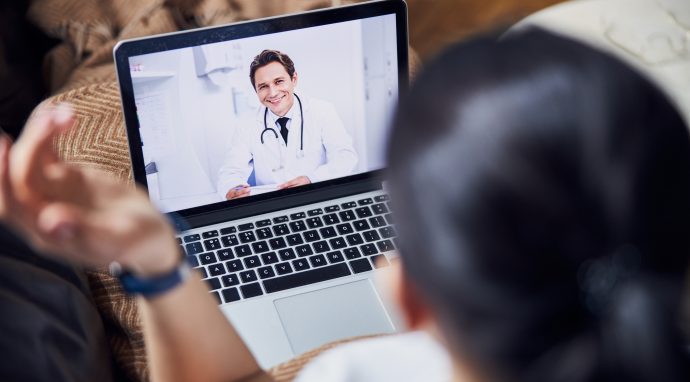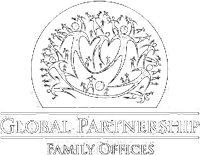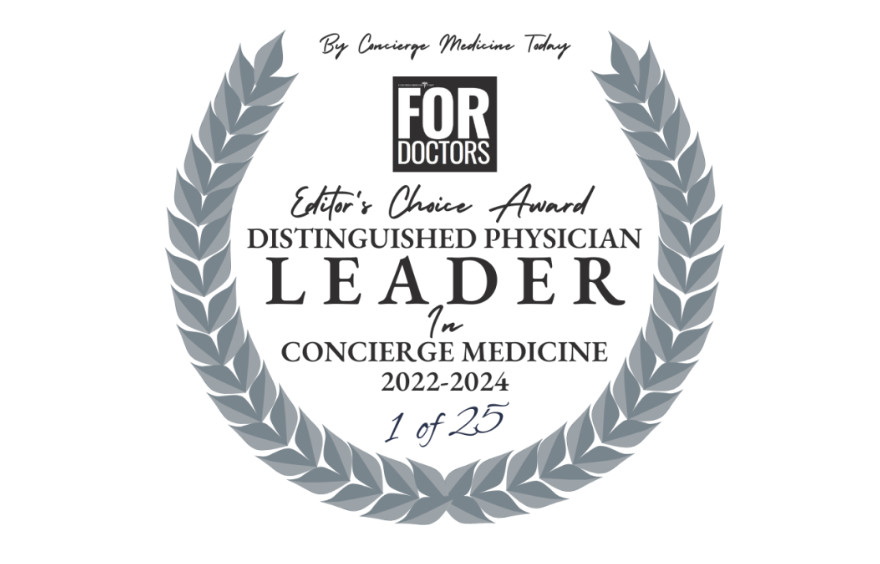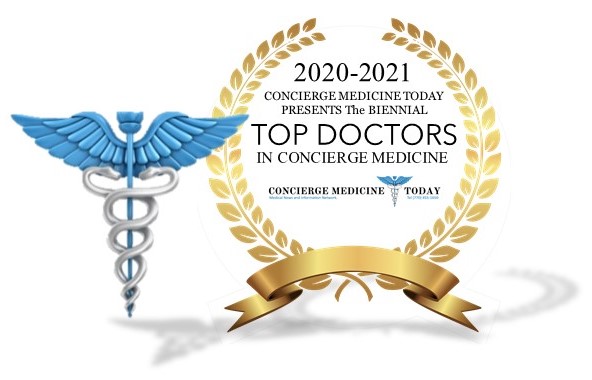How Will Concierge Medicine Change Post COVID-19?
How Will The COVID-19 Pandemic Change The Healthcare Industry & Concierge Medicine?

In 2020, respiratory disease SARS-CoV-2 had spread across continents at a remarkable rate, after originating in China in 2019. On 11th March 2020, the World Health Organisation declared the outbreak of COVID-19 a pandemic. Soon after, offices, businesses, schools and universities were forced to close worldwide, and nothing could have prepared healthcare professionals for what was coming their way.
However, the after-effects of COVID-19 could transform the industry for decades to come.
Telemedicine Makes Its Mark
One immediate change in the health sector has been the rapid adoption of virtual appointments. The industry made 20 years of progress in merely months. The NHS now has “e-Consults” in GP practices, where patients submit their questions online, and receive responses in a timely manner. This may be a telephone or video call from the doctor, a repeat prescription, or an urgent referral. In 2019, we wouldn’t have thought that NHS GP practices would adopt this model, and this is certainly here to stay. GPs are seeing more patients at shorter notice, improving efficiency of the system.
We’re Seeing More “Direct Care”
The above model is nothing new however. Since 1996, concierge doctors have been well-versed in the art of telemedicine, triage and prescribing remotely. Patients can send a message, call or email as concierge medicine provides direct access to their doctor. This members-only model came about due to the “global citizen”-nature of members at exclusive concierge practices. Whether patients are in Los Angeles or Mumbai, they will often contact their concierge doctor with health concerns, who may arrange referrals across waters to reputable medical institutions, or communicate closely with the patient’s surgeon. The concierge doctor is always up to date and medical records collated.
As the pandemic hit, concierge doctors reported a surge in demand for memberships and their telemedicine setup. The speed, efficiency and care of concierge medicine was brought into the pandemic-era, with COVID testing and COVID-specialised medical care (concierge-medicine style), with discreet access to leading medical facilities. The concierge medicine or “direct care” model not only bloomed during the pandemic, but spilled over to public healthcare, as patients became adverse to leaving their homes and sitting in waiting areas.
The COVID-19 pandemic has exhibited the strengths of experienced doctors accustomed to telemedicine, which is here to stay. This certainly doesn’t replace in-person appointments, but provides a more efficient way of providing care to patients, which has been a staple of concierge medicine. As evidenced by the changes in the NHS, there is a “direct care” model emerging in public health systems.
We’ll Be Monitoring Long Term Health Risks – Case Management Will Be Crucial
Many factors influence the effect of COVID-19 on patients; including age, medical conditions, co-morbidities and even genetic factors, as published in several studies including a study of 332 hospitalised COVID-19 patients[1]. Of those hospitalised, many soon develop Type 2 Diabetes due to the steroids used in treatment of the virus. While treatable, it is currently unknown how long the Diabetes may persist for those affected. These patients could therefore face an increased likelihood of developing cardiovascular disease in their life.
Increased health risks for COVID-19 survivors could be managed in the form of Case Management in healthcare by concierge doctors, who could work with leading specialists to action effective screening programmes. When President Donald Trump contracted COVID-19 in October 2020, it was evident that the care he received had a very “Case management”-style approach, where several specialists brought their expertise together, and worked with the President’s doctor to take preventative action on a virus which could have multiple outcomes on the body, rather than waiting for things to worsen individually. We will likely see this style of medicine being adopted by concierge doctors to screen patients and reduce the likelihood of certain diseases having serious consequences, especially when the long-term health effects of COVID-19 remain largely unknown. This could mean tailored check-ups for COVID-19 survivors at concierge practices, which would include heart and lung health check-ups, and brain scans to monitor subtle annual changes which physicians may not otherwise pick up.
Your Genetic Variants May Impact Predisposition To Disease More Than We Thought
A study of 236,279 US patients with COVID-19 found that nearly 1 in 3 patients had a neurological or psychiatric condition diagnosed within 6 months of infection[2]. There was also a notable increase in diagnoses of dementia after COVID-19[3], and there could be more health issues uncovered as time goes on.
Is there a way we can assess the risk of developing these diseases in the future, for COVID-19 survivors?
One way some concierge doctors plan to investigate this, is through whole genome sequencing. The question is, are those who had COVID-19 more likely to develop neurological, cardiovascular or psychological disease if they already have certain genetic variants which increase their risk of these diseases? Do genetic variants really play a vital part? A study of 332 patients concluded that genetic variants did have a profound impact the likelihood of patients being asymptomatic, mild, moderate, serious or critically ill from COVID-19[4]. A UK study also reported that those with blood group A were more susceptible to a serious COVID-19 infection, compared to those with blood group O, who were reported to have the least severe infection[5]. Genetic variants really do seem to play a part which doctors had not previously considered so highly.
Precision Medicine May Transform Longevity Planning
Precision medicine is practised by concierge doctors and is commonly defined as a tailored approach to disease treatment and prevention, taking into account and individual variability in genes, environment and lifestyle.
Although in 2013 actress Angelia Jolie famously rose awareness of genome sequencing by her own hereditary risk of breast and ovarian cancer; inspiring the adoption of genome sequencing by the NHS; the impact of COVID-19 on whole genome sequencing could be more profound.
This pandemic is the first time (since whole genome sequencing became more widely available), that we see a large scale example of the effect of genetic variants on the impact of disease for patients. Studies have already concluded that patients with certain genetic variants were more likely to contract COVID-19, which may explain the differences that doctors have seen in patients’ susceptibility to this disease.
The hope is that whole genome sequencing results will allow concierge doctors to prepare for future health risks of patients who possess these genetic variants, and previously had COVID-19. What the results from these studies teach us is that genetic variants may have a larger effect on hereditary disease risk than doctors previously thought.
A combination of genetic variants which make you predisposed to developing specific disorders in your lifetime, combined with a prior COVID-19 diagnosis, could remarkably increase the risk to the patient in the future of developing such diseases; although we don’t yet know how much. It means these patients need to have a comprehensive screening programme, led by a doctor who has analysed hereditary risks and coordinated appropriate diagnostics.
In the long run, there may be more advancement in “precision medicine” as we adapt to the after-effects of the pandemic, just as COVID-19 gave such an advancement for telemedicine in the short-term.
We might find that whole genome sequencing of patients will provide concierge doctors with not only greater knowledge for longevity planning, but also enable our world to identify health risks more effectively and prevent the same level of suffering and loss in future pandemics.
[1] Wang, F., Huang, S., Gao, R., Zhou, Y., Lai, C., Li, Z., Xian, W., Qian, X., Li, Z., Huang, Y. and Tang, Q., 2020. Initial whole-genome sequencing and analysis of the host genetic contribution to COVID-19 severity and susceptibility. Cell discovery, 6(1), pp.1-16.
[2] Mahase, E., 2021. Covid-19: One in three has neurological or psychiatric condition diagnosed after covid infection, study finds (published online 7 Apr). https://www.bmj.com/content/373/bmj.n908
[3] Taquet M, Geddes JR, Husain M, Luciano S, Harrison PJ. 6-month neurological and psychiatric outcomes in 236379 survivors of COVID-19: a retrospective cohort study using electronic health records. Lancet Psychiatry 2021 (published online 6 Apr).doi:10.1016/S2215-0366(21)00084-5. https://www.thelancet.com/journals/lanpsy/article/PIIS2215-0366(21)00084-5/fulltext.
[4] Wang, F., Huang, S., Gao, R., Zhou, Y., Lai, C., Li, Z., Xian, W., Qian, X., Li, Z., Huang, Y. and Tang, Q., 2020. Initial whole-genome sequencing and analysis of the host genetic contribution to COVID-19 severity and susceptibility. Cell discovery, 6(1), pp.1-16.
[5] Zhao, J., Yang, Y., Huang, H., Li, D., Gu, D., Lu, X., Zhang, Z., Liu, L., Liu, T., Liu, Y. and He, Y., 2020. Relationship between the ABO Blood Group and the COVID-19 Susceptibility. Clinical Infectious Diseases.
Concierge Medicine Membership
Learn more about our concierge medicine membership for VIPs.











